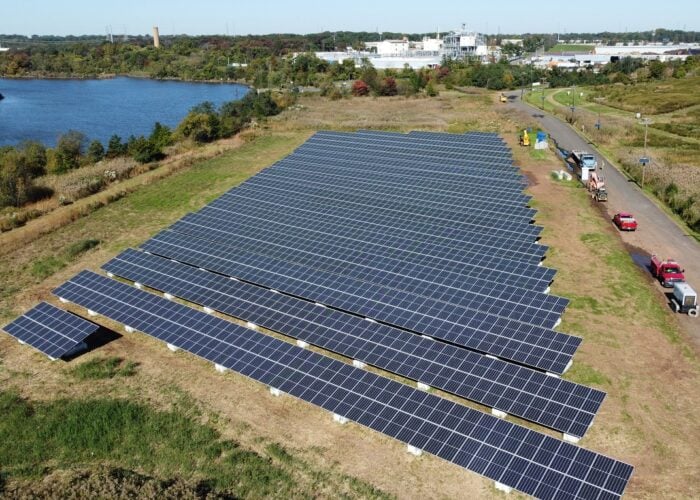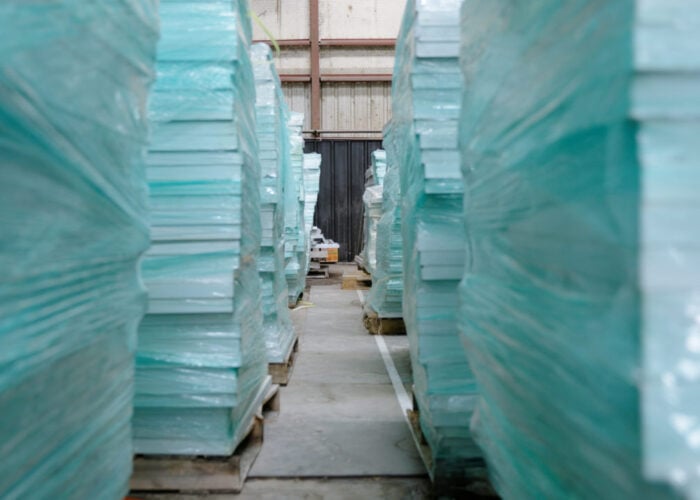
The US Department of Treasury (DOT) and the Internal Revenue Service (IRS) have released the final rules for the Advanced Manufacturing Investment Credit (CHIPS ITC).
In its final ruling, the domestic manufacturing of solar ingots and wafers has been included with a 25% investment tax credit under Section 48D of the Advanced Manufacturing Investment Credit rules.
Unlock unlimited access for 12 whole months of distinctive global analysis
Photovoltaics International is now included.
- Regular insight and analysis of the industry’s biggest developments
- In-depth interviews with the industry’s leading figures
- Unlimited digital access to the PV Tech Power journal catalogue
- Unlimited digital access to the Photovoltaics International journal catalogue
- Access to more than 1,000 technical papers
- Discounts on Solar Media’s portfolio of events, in-person and virtual
Or continue reading this article for free
Furthermore, the US Treasury and IRS, with the Department of Energy and other agencies, said it will continue to evaluate additional options to incentivise further domestic production of components in the full solar supply chain, including wafers.
The new regulations are effective starting from 23 December 2024, and will include manufacturing facilities, which began production after the end of 2022, or are scheduled to start operations before the end of 2026.
“Today’s final guidance provides critical certainty for semiconductor and solar manufacturers to make generational investments in communities across the country,” said national economic advisor Lael Brainard.
The inclusion of tax credits for the domestic manufacturing of solar ingots and wafers comes over a month after proposed tariff increases for wafers and polysilicon under Section 301. The tariff for both wafers and polysilicon could be increased to 50%, however these tariffs alone would not have been enough to help boost domestic manufacturing of wafers in the US (Premium access), which is facing an imbalance in its upstream manufacturing capacity, as explained by advisory body Clean Energy Associates (CEA) last year in a guest article on PV Tech.
Industry welcomes tax credits
The US solar industry has long demanded the inclusion of domestic manufacturing tax credits for solar ingot and wafer production. Earlier this year, Davor Sutija, CEO of NexWafe, a manufacturer of solar wafers, wrote a guest blog on PV Tech regarding the inclusion of domestically produced wafers in domestic content incentives.
Meanwhile, the Solar Energy Manufacturers for America (SEMA) Coalition, a trade association, applauded the decision from the DOT and the IRS. The SEMA Coalition was among the industry voices calling for the US to include incentives for domestic manufacturing of wafers.
“The final 48D rules will help solar manufacturers unlock the full potential of the CHIPS and Science Act by providing critical support for efforts to reshore the entire solar supply chain. We applaud Treasury’s final CHIPS ITC rules, which clarify that domestic solar ingot and wafer manufacturers can access this landmark incentive,” said Mike Carr, executive director at the SEMA Coalition.
The Solar Energy Industries Association (SEIA), another trade association, also welcomed the final ruling, which president and CEO Abigail Ross Hopper said “will create new opportunities for solar manufacturers”.
“Treasury’s final rules will create new opportunities for solar manufacturers and encourage the upstream development of the solar supply chain,” added Hopper.
“Supply chain accessibility and security remains one of our biggest challenges in the US solar and storage industry. While the United States is a global leader in module manufacturing, we don’t have any ingot and wafer facilities in operation yet, representing a critical gap in the solar supply chain.”







